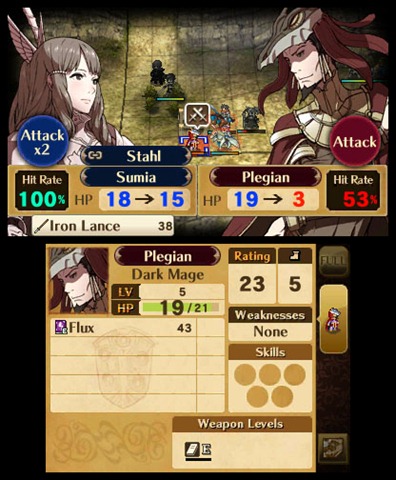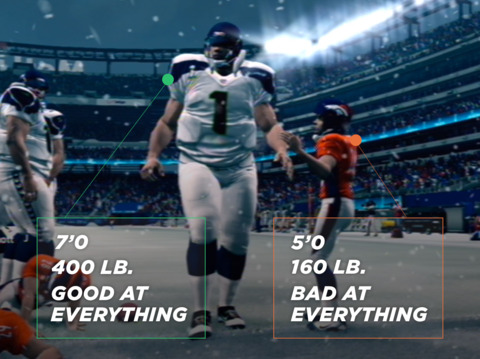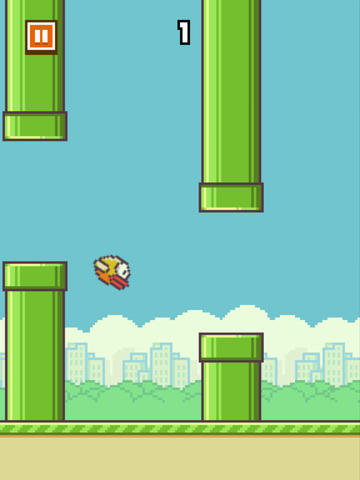29. Not exactly the age where people expect you to write a blog about how much you've learned.

But if I had to share a piece of knowledge that would be applicable here, a lesson thematically consistent with the work I've published this week, it's being able to admit you're wrong. It's not as simple as being able to admit the wrongness, either, it's doing the hard work to find out how your assumptions hold up. Perhaps it's part of my reporter DNA spilling into other parts of my personality, but it's what lead to writing my pseudo-apology to Dark Souls earlier this week.
The apologetic tone was both sarcastic and serious. See, it's so easy to slip into what's comfortable, and that's absolutely true with games. It makes sense, too, right? Why spend time with games you're not sure you'll enjoy? That's true of any hobby, and I won't begrudge anyone who wants to spend their personal time with pursuits that are guaranteed to make them happy.
This is an idea I've mentioned before in Worth Reading, but it's important enough to repeat. Push yourself, test your boundaries, and embrace the uncomfortable. It's rewarding to challenge your own ideas, even if the conclusions might surprise or upset you. I thought I didn't like strategy games...until I played XCOM. Then, I fell in love with Fire Emblem: Awakening. I thought animation priority didn't make any sense...until I played Monster Hunter 3: Ultimate. Now, Dark Souls is an all-time favorite.
This reminds me of an article I read a few months back. I can't find the specific piece anymore, but generally speaking, it explained why life seems to move faster and faster as we get older. The concept was mentioned in this New Yorker profile of neuroscientist David Eagleman:
"One of the seats of emotion and memory in the brain is the amygdala, he explained. When something threatens your life, this area seems to kick into overdrive, recording every last detail of the experience. The more detailed the memory, the longer the moment seems to last. 'This explains why we think that time speeds up when we grow older,' Eagleman said--why childhood summers seem to go on forever, while old age slips by while we’re dozing. The more familiar the world becomes, the less information your brain writes down, and the more quickly time seems to pass."
There's no reason to think this wouldn't apply to games, too. If all one does is play the same types of games over and over again, they can become less memorable. I'll never forget my recent firsts, and they've opened whole new genres that were once closed off. There are new memories to be made.
Hey, You Should Play This
Please enter your date of birth to view this video
By clicking 'enter', you agree to Giant Bomb's
Terms of Use and Privacy Policy
And You Should Read These, Too

Outside of preparation for one of my earliest Quick Looks, I haven't touched the Madden series. Despite getting more and more interested in the nuances of football every year, I haven't had much interest in playing Madden. But in the years ahead, you can guar-an-tee I'll be reading Breaking Madden every week. Jon Bois has found ways to mangle and manipulate Madden in ways its developers never could have expected, and what Bois pulls off when pitting a gigantic team of Seahawks players against a woefully underpowered set of Broncos is...something else. There is a reason for the article is titled the way it is. The game finally just gave up.
"These Broncos were stone-cold stupid. Madden's Awareness rating, as demonstrated by previous installments of this series, is one of the very most potent skill categories. Without it, normally competent players are reduced to total knuckleheads who often don't know what they're doing, what they're supposed to be doing, where the ball is, or whether they're playing a sport at all. The Broncos' kick returner, Big Walrus, was so completely checked out that I was able to kick the ball and hit him in the ass. That was not an isolated incident. There were lots and lots of kickoffs in this game, naturally, since I was scoring all the time. When I kicked them the ball, they kinda just stood there. AND THE BALL KEPT HITTING THEM IN THEIR ASSES."
***
- "The Squalid Grace of Flappy Bird" by Ian Bogost

I haven't played, nor do I intend to play, Flappy Bird. This comes from the person who, paragraphs ago, was encouraging people to experiment outside their wheelhouse, but Flappy Bird seems skippable. What I can't get enough of, however, are people talking about Flappy Bird. Ian Bogost seems to nail the existential crisis many people are having while playing the game and trying to understand its came-out-of-nowhere popularity. Bogost explores how Flappy Bird frustrates us in our attempts to define what it is and what its creator wanted it to be. You'll read no better analysis of a seemingly terrible game.
"But Flappy Bird is not difficult because it wants to oppose any regime in particular; a fact made flesh by its deployment on the mobile platforms that have only accelerated casual play. Flappy Bird is not difficult to challenge you, nor even to teach the institution of videogames a thing or two. Rather, Flappy Bird is difficult because that’s how it is. It is a game that is indifferent, like an iron gate rusted shut, like the ice that shuts down a city. It’s not hard for the sake of your experience; it’s just hard because that’s the way it is. Where masocore games want nothing more than to please their players with pain and humiliation (thus their appropriation of the term “masochism”), Flappy Bird just exists. It wants nothing and expects even less."
If You Click It, It Will Play
Like it or Not, Crowdfunding Isn't Going Away
- Tiny Cartridge is a quality gaming site covering handhelds, and it's trying to raise some funds.
- Nevermind is a horror game that adjusts the scares based on the player's biometrics.
- Pantheon: Rise of the Fallen is an MMO being pitched by EverQuest creator Brad McQuaid.
Tweets That Make You Go "Hmmmmmm"
Disney owns: Disney Studios, Parks, Muppets, Marvel, Lucasfilm, ILM, Pixar, ESPN, ABC, A&E, much more Nintendo owns: the Seattle Mariners
— Ian Bogost (@ibogost) January 30, 2014
Point being, Disney is a massively diversified entertainment company. Nintendo needs dozens of new ideas/markets, not one.
— Ian Bogost (@ibogost) January 30, 2014
1. BioShock Infinite: Obviously. #worst2013
— Tevis Thompson (@tevisthompson) January 31, 2014
2. The Stanley Parable: A self-satisfied bit of cleverness. An inside joke with no outside. Insufferably chatty. Not even funny. #worst2013
— Tevis Thompson (@tevisthompson) January 31, 2014
3. Device 6: All style, boring substance. Promising textscapes ruined by tired single-solution puzzles. A misuse of rereading. #worst2013
— Tevis Thompson (@tevisthompson) January 31, 2014
4. Link Between Worlds: Posterboy for how little we still expect from games. The Zelda revolution that never happened. A trifle. #worst2013
— Tevis Thompson (@tevisthompson) January 31, 2014
5. Tomb Raider: A very polished, faux-gritty Uncharted clone. Rhianna Pratchett didn’t write the leering camera or QTE deaths. #worst2013
— Tevis Thompson (@tevisthompson) January 31, 2014
It seems I can't download an ESRB "RP" logo (required to put a trailer on a console) without writing a paper letter to the ESRB in New York.
— Jonathan Blow (@Jonathan_Blow) February 5, 2014
Oh, And This Other Stuff
- Cameron Kunzelman discovers a game that prompts him to consider the idea of "completion."
- John Walker considers the idea of games entering the public domain eventually.
- Steve Gaynor offers a response (and criticism) of Walker on the public domain and games.
- Ashton Raze proposes the humorous Octodad is actually an analogy for invisible illnesses.
- Matt Leone has compiled an exhaustive oral history of Street Fighter II that you must read.
- User 2xtreme does the math and comes up with Spelunky stats for myself and Chris Remo.
- Peter Malamud Smith explores how fan-made games helped keep Mega Man relevant.
- Flushed is an e-zine that explores the intersection of video games and, well, toilets.
- Ryan Smith profiles a transgender player challenging expectations in competitive StarCraft II.
- This petition for the White House wants to change our national anthem to Guile's theme.
- Adrian Chmielarz explains what pisses him off about the people who criticize Gone Home.
- Gus Mustrapa has the best recommendations for Nintendo's future that I've seen yet.
- Stephanie Carmichael shows how a blind, disabled, and gay journalist deals with prejudice.